High quality aggregates from CDW? YES, RE4 CAN!
It all starts with the sorting of the CDW. To properly select a suitable material for the recycling, RE4 partners are developing a mobile CDW robotic sorting system. The CDW robotic sorting system, after being subjected to an intensive tuning and testing phase in the SIIT (Sistemi Intelligenti Integrati Tecnologie) laboratories in Genoa, Italy, is being tested in an industrial environment in Oxford, UK, under the supervision of STAM and CDE. This second part of test allowed verifying if the performance and results achieved in the laboratory can be equally achieved in an industrial site. Once the system was transferred to the UK, STAM and CDE worked together to minimize the error rate and increase production in terms of kg/h. A second commissioning session is scheduled for early November. The final aim is to improve and optimize the sorting activity, with the validation of the robotic sorting system in an industrial environment.
 Fig. 1: RE4 Sorting system testing
Fig. 1: RE4 Sorting system testing
When classifying coarse recycled mineral aggregates for use in new concrete, the constituent material is examined and quantified in relative proportions (see Fig. 2). Based on this quantification, the recycled aggregate is classified in the two quality classes Type A and Type B, which can be then used to various extent in new concrete based on class and expected exposure class. The novelty of our work is a suggested refinement of the quality classes and their suggested limits of use, based on the extensive assessment of mineral CDW and its performance in concrete conducted in the RE4 project. Above the two already existing classes, two new are suggested: Type A+ and Type L (see Tab.1). The quality of classes Type A+ and Type A is suitable for use in concrete in load-bearing structures, whereas class Type B would be intended for applications in, for instance, concrete masonry units or in non-structural concrete. Type L should be used for mineral CDW, which have oven-dry density ≤ 2000 kg/m3, thereby qualifying as lightweight aggregate for lightweight concrete. The suggested classes can also be used for other products, e. g. reconstituted roof tiles (Type A+) and façade panel applications (Type A, B or L), with additional requirements on frost-resistance when relevant. The work on the quality classes and related issues, such as standardization and certification, will continue during the remainder of the RE4 project, as well as in technical committees that the consortium partners have access to.
 Fig. 2: Constituent classification of 8/16 mm sorted CDW from southern Europe, following procedures and classes defined in the test standard
Fig. 2: Constituent classification of 8/16 mm sorted CDW from southern Europe, following procedures and classes defined in the test standard
 Tab. 1: EN 206:2013 existing (green) and proposed by RE4 consortium (orange) quality classes for CDW mineral aggregate to be used in non-structural and structural concrete.
Tab. 1: EN 206:2013 existing (green) and proposed by RE4 consortium (orange) quality classes for CDW mineral aggregate to be used in non-structural and structural concrete.
RE4 eco-sustainable components now available for your Green building

The general approach consisted in the optimization of innovative building solutions suitable for industrial applications aiming, at the same time, at the maximization of RE4 CDW usage. RE4 CDW has the potential to be used for green building materials and prefabricated components complying with target requirements set for industrial production. The physical and mechanical properties of RE4 materials and components comply with the requirements set by European Standards and National Building Codes.
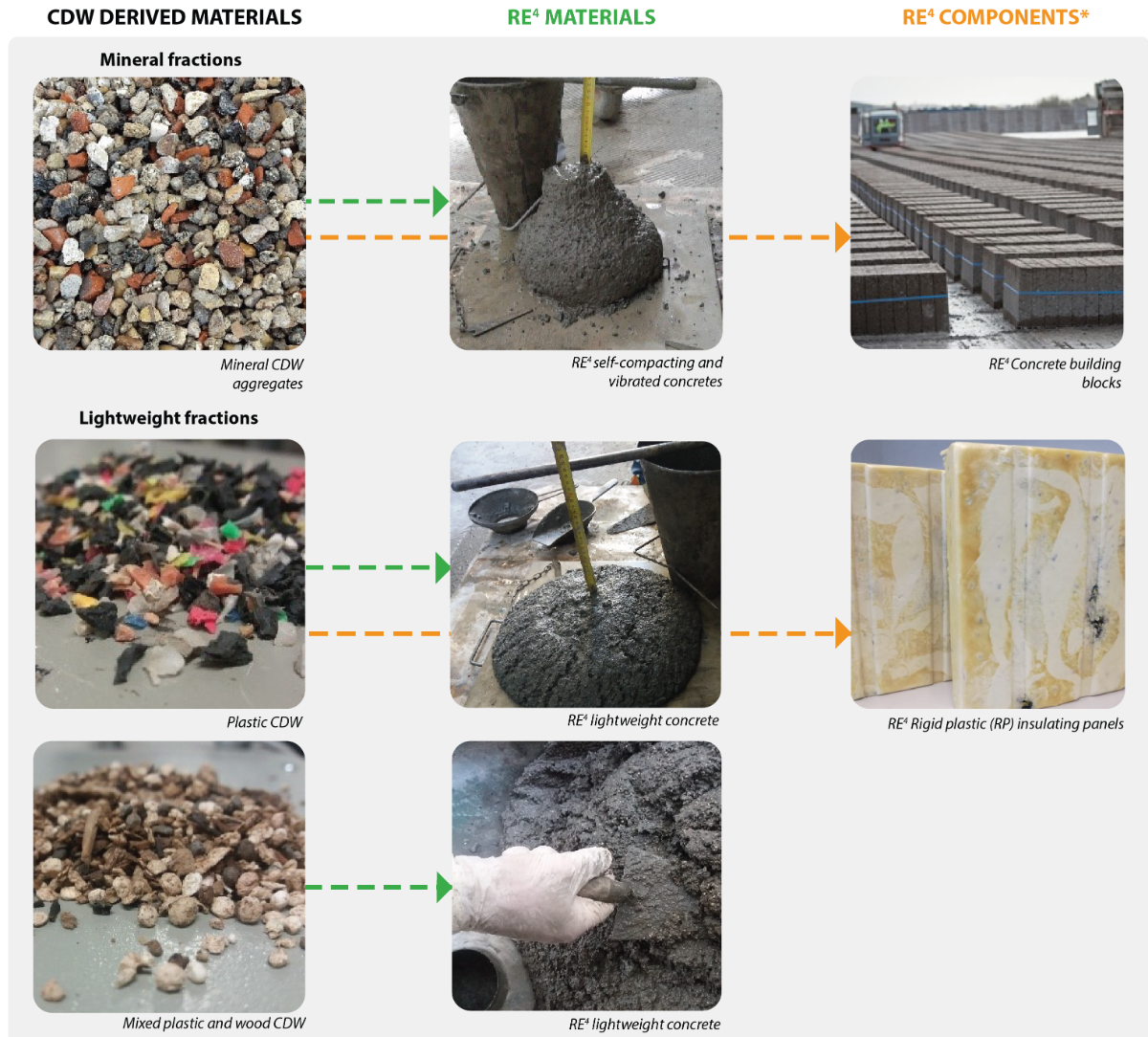
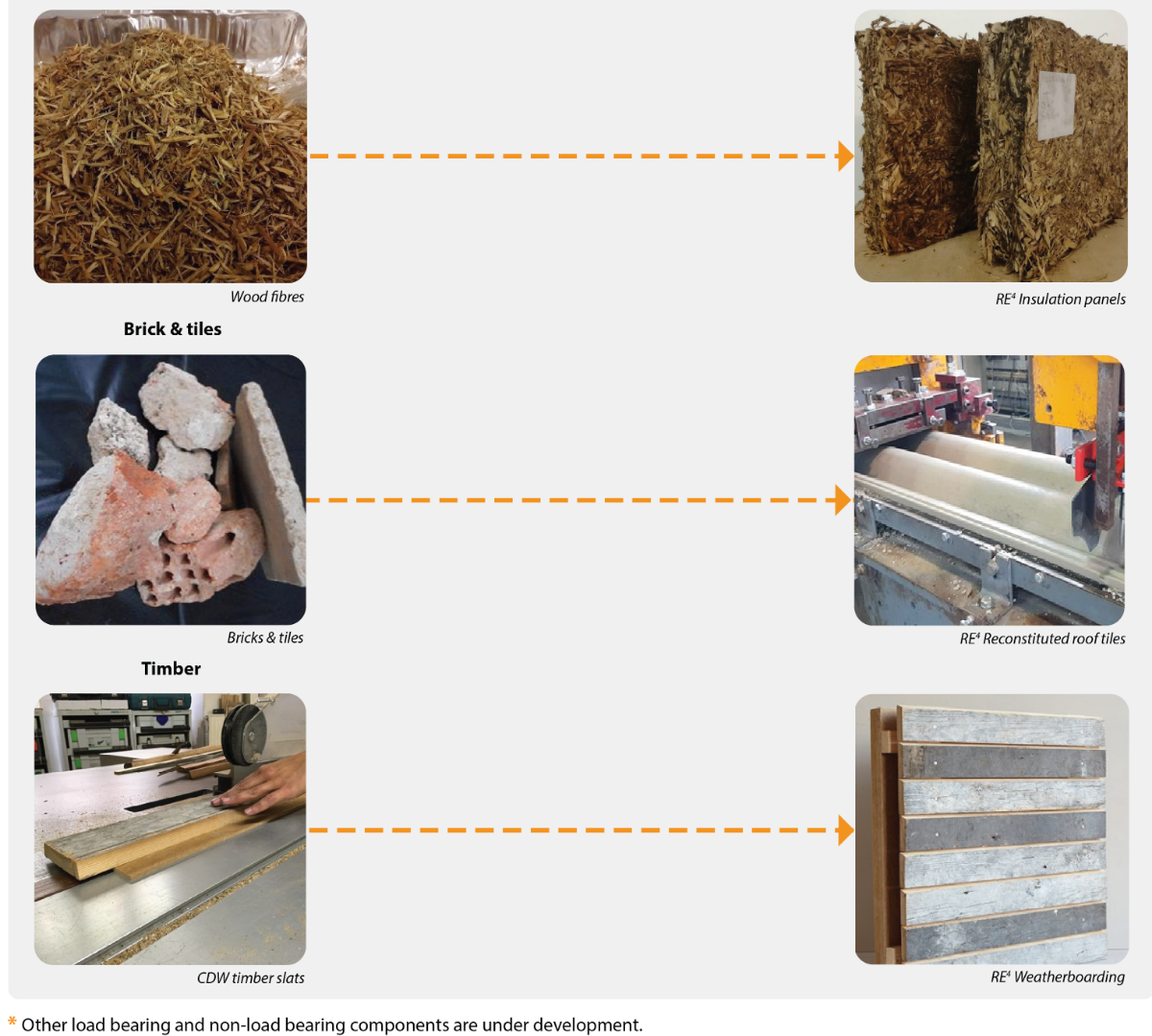
RE4 elements

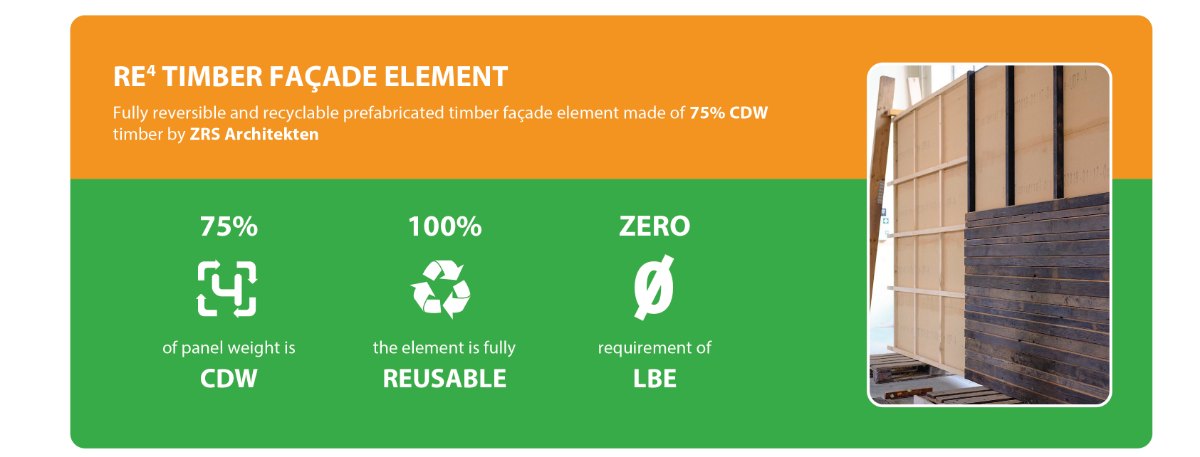
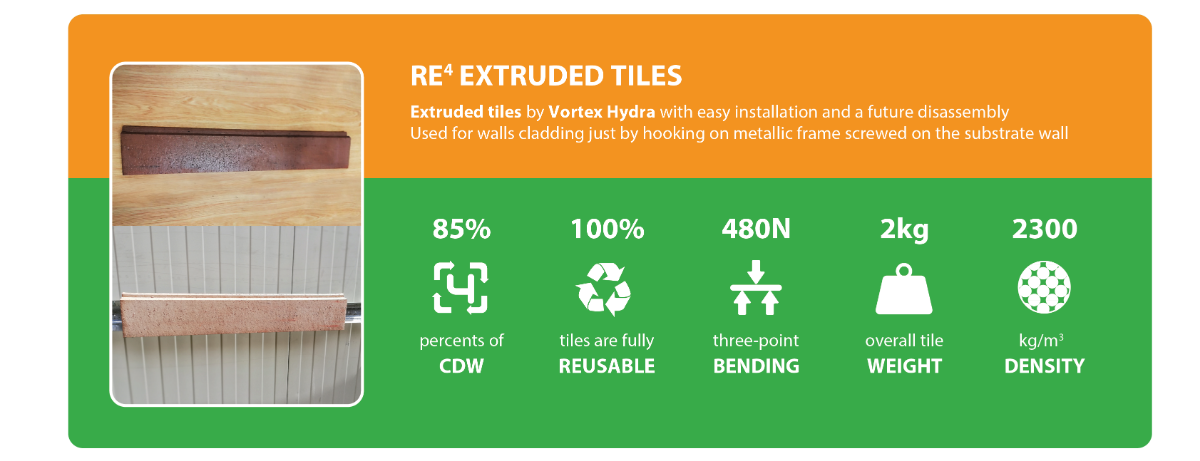
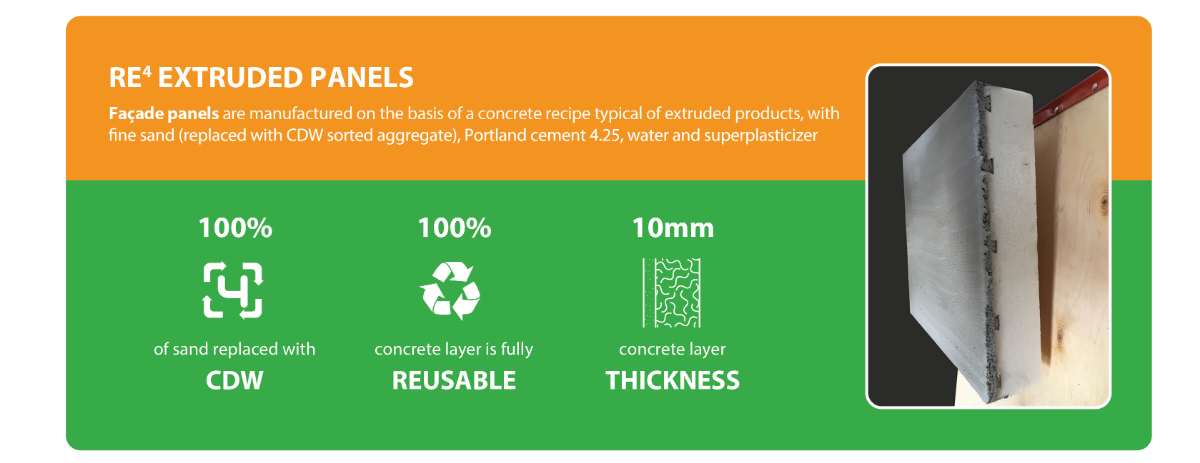
Production of RE4 extruded tiles
Within the spirit of the RE4 project, the efforts have been focused on a type of product which ensured both an easy installation and a future disassembly, namely a Marmoroc® (Sweden patent) type extruded tiles, a kind of extruded façade stone, which is used for walls cladding just by hooking them on metallic frame screwed on the substrate wall.
Aggregates, previously sorted by other partners within the RE4 project, have been mixed with water and cement and processed through an extruder machine. Extruded products have been properly cured and then tiles produced within the Vortex Hydra facility have been delivered to the sites where demo-buildings are erected for further on field investigation.
A big challenge to be tackled was that of dealing with recycled aggregates that exhibit a bigger size compared to the that of virgin sand normally used with extruded tiles. Satisfactory percentages of CDW derived aggregates were targeted.










